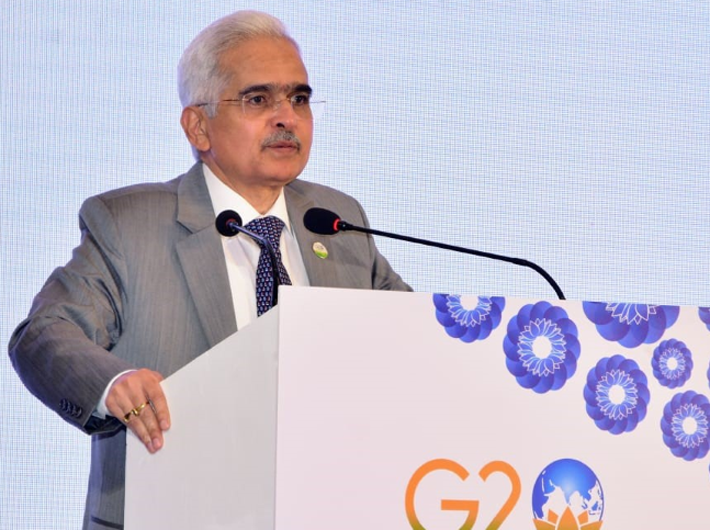RBI governor says DPI for global public goods will advance financial inclusion and productivity gains
Giving the example of India’s Unified Payments Interface (UPI) system during the pandemic and thereafter, RBI governor Shantikanta Das said that digital public infrastructure (DPI) can be utilised for advancing financial inclusion and productivity gains through cost reductions and can become a critical part of global public goods (GPGs) when scaled up beyond national borders.
For this, he said the private sector needs to come forward and engage in the provision of GPGs for an enabling business ecosystem as well as for their commercial viability. The trigger financing, he said can come from public investment while subsequent financing needs can be met by the private sector and multilateral development banks (MDBs) could catalyse private sector investment through risk sharing mechanisms.
“Lack of timely financial support and creditor cooperation can explain, even if partly, rising debt stress in some developing economies. High and unsustainable debt levels have severely constrained many countries, limiting their fiscal capacity.”
Das was speaking at the G20 Finance Track national event in Mumbai Friday.
He said it is incumbent upon institutions of International Monetary Fund (IMF) and the World Bank to do more for countries in debt distress.
“At present, the IMF’s precautionary programmes such as the Precautionary Lending Line are available for countries with sound macro-fundamentals; however, there is little reason for countries with strong macro-fundamentals to seek Precautionary Lines.
“Further, Stand-By Arrangements (SBAs) are offered for countries with a balance of payments crisis; but SBAs come with performance benchmarks, and the attendant stigma. This is an important issue, as the recent experience shows how the perceived stigma of and/or lack of access to IMF programmes can cause countries to seek support from other lenders rather than the IMF, with debt sustainability consequences.”
He said it could be helpful to design programs with less conditionality for countries with macro fundamentals that are not sound but reasonably resilient, if they are not marred by balance of payments stress.
“Corrective measures, including financing, should be put in place in a timely, non-stigmatised and more open access basis. For this purpose, a bigger and stronger IMF that is capable of managing the levels of country risk assumes crucial importance. Since the IMF’s support is linked to the quota size of countries, the 16th general review of quotas and its attendant requirements, including governance reform, need to be completed expeditiously. Besides enhancing the legitimacy of the IMF in its oversight of the international monetary and financial system, this will increase traction for the IMF’s policy advice.”
Adding that the burden of debt should not be allowed to stifle the potential for global growth, Das said it is essential that Debt Sustainability Analysis (DSA) for countries is realistic on growth and fiscal projections are fully founded on accurate and comprehensive debt data.
“As establishing a global debt data-sharing platform may take several years in the interregnum, the possibility of constructing suitable proxies for debt flows through sources like the Institute of International Finance (IIF) and the Bank for International Settlements (BIS) could be explored,” he said.
He added that a multilateral debt relief program with targeted assistance to low-income countries with high debt levels needs to be considered on a priority basis. The initiative can be designed with a clear focus on utilisation of debt relief for sustainable development projects and poverty reduction efforts. Instruments like debt-for-development swaps and green debt relief programmes could be employed.
Das also brought the attention to bringing in long-term structural challenges like climate change through supply of adequate and affordable financing for green transition. He said,it critical to fortify regulatory frameworks that enable implementation of climate taxonomy across jurisdictions, prevents greenwashing and facilitate sufficient green capital inflows to EMDEs (emerging market and developing economies) and have public-private participation.

